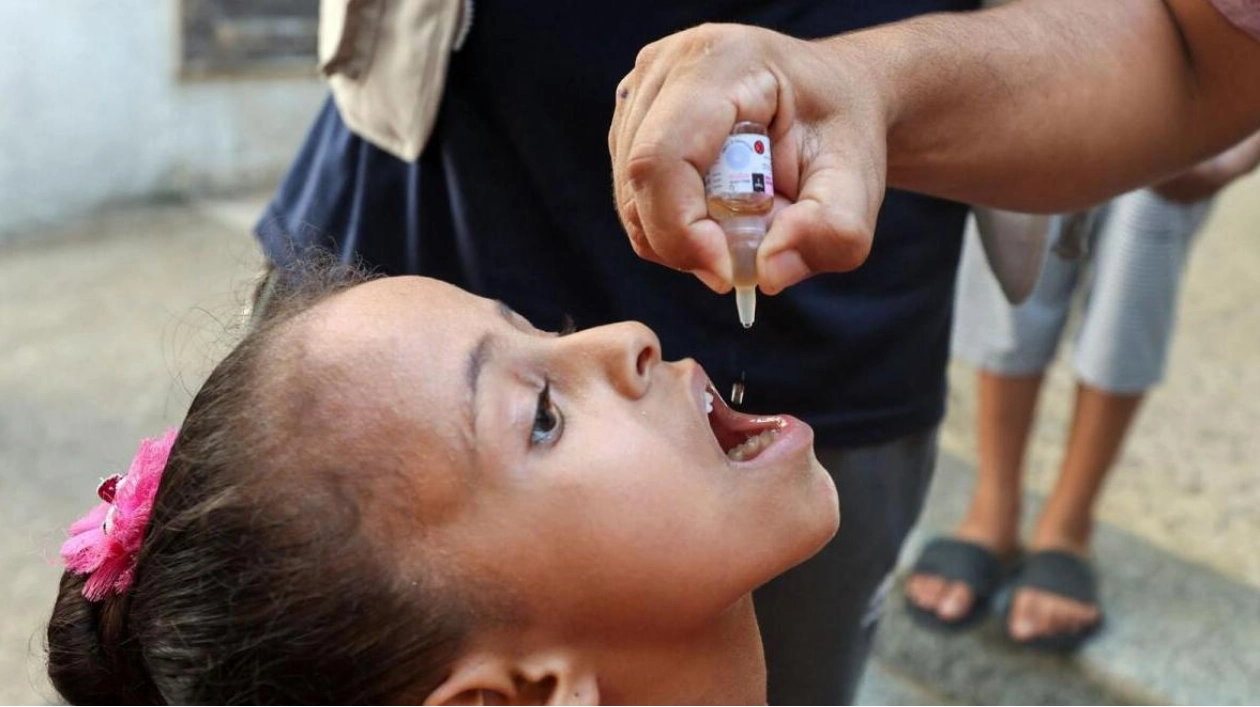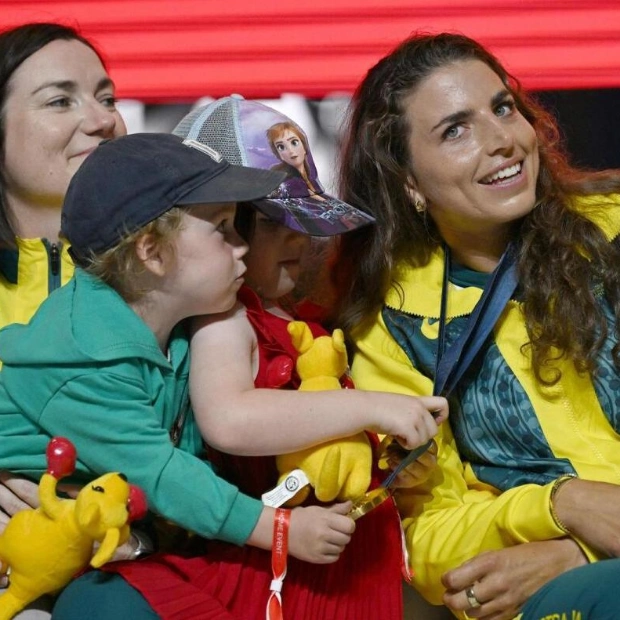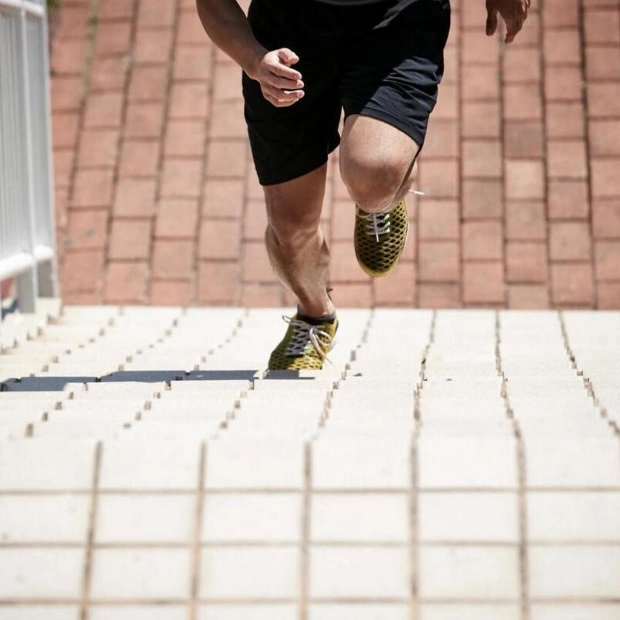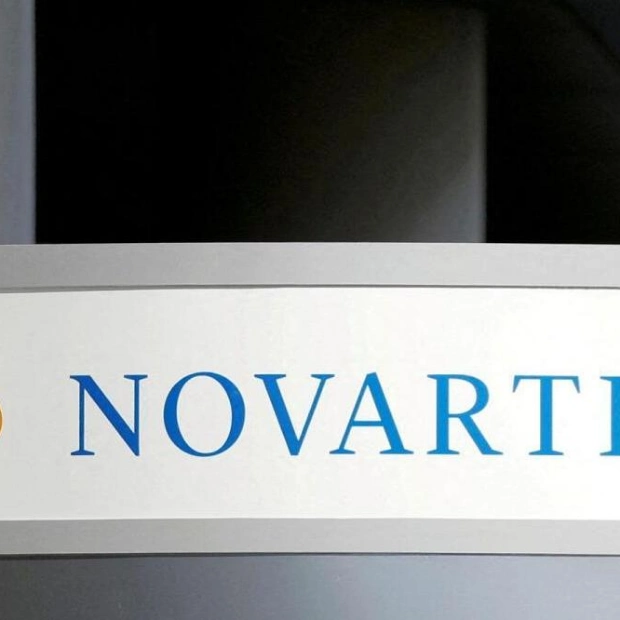Significant advancements are being made in the distribution of a polio vaccine to children in Gaza, but a lasting ceasefire in the ongoing 11-month conflict is essential to alleviate humanitarian distress, according to the primary UN agency for Palestinians, UNRWA, on Wednesday.
UNRWA reported that within the first three days of the campaign in central Gaza, approximately 187,000 children had been vaccinated. The campaign is set to expand to other regions of the Palestinian territory in its subsequent phase. The initiative was triggered by the identification of a polio case in a baby boy last month, marking the first such case in Gaza in 25 years. Israel and Hamas militants have agreed to daily eight-hour ceasefires in designated areas to facilitate the vaccination program, with no reported breaches.
"Remarkable progress! Each day in the central areas of #Gaza, more children are receiving vaccines against #Polio," stated Philippe Lazzarini, the head of UNRWA, on X on Wednesday.
While these temporary 'pauses' in polio provide some relief, what is critically needed is a permanent ceasefire, the release of all hostages, and the regular flow of humanitarian supplies, including medical and hygiene items, into Gaza, according to Lazzarini. Palestinians attribute the resurgence of polio to the collapse of Gaza's healthcare system and the destruction of most of its hospitals during the war. Israel accuses Hamas of utilizing hospitals for military operations, a claim the group denies.
On Tuesday, COGAT, an Israeli defense ministry agency responsible for coordinating aid shipments into Palestinian territories, announced that since the beginning of the war, it has enabled the entry of 282,126 vials of the polio vaccine, sufficient for 2,821,260 individuals. It also stated that approximately 554,512 vials of vaccines have entered the Gaza Strip, enough for 4,973,736 individual vaccines for various diseases and potential epidemics in the region. Gaza, home to around 2.3 million people, is one of the most densely populated areas globally.
Despite the success of the polio campaign, efforts to achieve a permanent ceasefire, release hostages held in Gaza, and secure the return of many Palestinians detained by Israel have stalled. Israeli Prime Minister Benjamin Netanyahu asserted on Monday that Israeli troops would continue to occupy the Philadelphi corridor on Gaza's southern border with Egypt, a major obstacle to reaching an agreement. Hamas, which demands the withdrawal of all Israeli forces from Gaza as part of any peace agreement, considers such conditions, among others, as preventing an accord. Netanyahu maintains that the war will only end when Hamas is eliminated.
This deadlock is causing frustration among Israel's international partners and the 15 members of the United Nations Security Council. Slovenia's UN envoy, who serves as the council's president for September, stated on Tuesday that patience is waning, and the global body may consider taking action if a ceasefire is not brokered soon.






